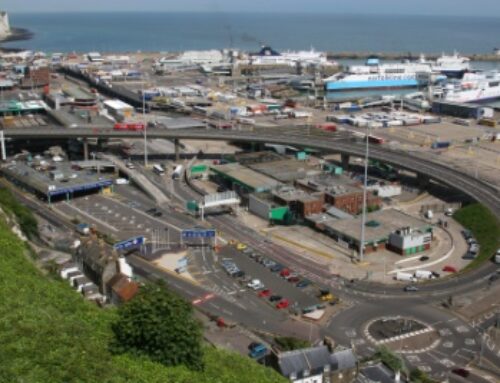Trade groups: fleets need finance to weather Covid-19 storm
 The road transport industry’s trade body representatives have called on government to boost financial support for the sector and hasten the delivery of measures already promised, to help fleets to continue to operate during and beyond the coronavirus pandemic.
The road transport industry’s trade body representatives have called on government to boost financial support for the sector and hasten the delivery of measures already promised, to help fleets to continue to operate during and beyond the coronavirus pandemic.
Last week the Road Haulage Association (RHA) chief executive Richard Burnett said that some RHA members had been forced to park up their entire fleets, and that the sudden drop in volume meant that 46 per cent of the national fleet was standing still.
“That’s around 240,000 trucks, out of a national total of around 525,000,” he said.
“These SME businesses are really struggling and the measures that the government have come up with simply don’t work.
The average haulier will make approximately a two per cent margin and they’ll have two to three weeks’ cashflow within their business.
“We’ve got hauliers at the moment who can’t even furlough their staff, because they have insufficient cash to pay them before government funds finally arrive.
“I am hopeful that the government will step up and aid businesses.
“They are definitely recognising how critical and important we are as an industry – we are the ones keeping the nation fed at the moment.”
Also of particular concern are the terms of the government’s furloughing policy, part of the Coronavirus Job Retention Scheme, through which businesses can reclaim up to 80 per cent of an employee’s usual monthly wage up to £2,500 per month, as well as employer national insurance contributions and minimum automatic enrolment employer pension contributions.
On 8 April, Burnett warned that half of the UK’s HGV driver workforce was inactive – and of this number, only half again had been furloughed, because the current scheme does not provide operators with the flexibility required.
“Volume across most sectors is substantially down, operators’ costs remain high, cash flow is drying up and return-load work has substantially reduced,” said Burnett.
“We know the existing financial support measures for our industry are not enough and transport businesses face ruin unless something is done quickly.”
HM Revenue & Customs this week promised to release the promised wages for workers who have been furloughed by the end of the month, and applications are due to open on 20 April, the chancellor has said.
The clarification addresses some of the points made in a joint letter to the chancellor and the business secretary from FTA CEO David Wells on 7 April, calling for reassurance from government on the resilience of the furlough scheme, as well as the speed at which payments could be made, and clarity on other financial arrangements.
“Nationwide, companies that are taking the government at its word and furloughing workers instead of laying them off are fast running out of cash as the economy grinds to a halt,” he wrote.
“It’s critical that businesses know when the payments from the furloughing programme will be received, and that these payments are made as soon as possible after the scheme opens at the end of April.”
He also called for assurance from government that participation would not be “restricted by further conditions and clauses when the scheme launches”.
While changes to the Coronavirus Business Interruption Loan Scheme (CBILS) scheme were welcomed as a means of bridging the gap, Wells said, “the banks need to step up and deliver the cash quickly where it’s needed.”
“Up until now the scheme hasn’t been working and the loans were not getting through,” he continued.
“This is putting even more pressure on finances and causing more businesses to fail every day.
Earlier in the month, FTA welcomed announcements from the Treasury expanding financial support for the industry, but said further measures needed to be forthcoming.
“Job security is vital to logistics workers hit by furloughing or uncertain trading conditions, and FTA’s members are keen to see government deliver and extend the Coronavirus Job Retention Scheme to provide certainty of employment,” said Elizabeth de Jong, Director of Policy at FTA.
“In our view it is also paramount that a Supply Chain Continuation Fund is created, to give particular help and support to specific areas and sectors hardest hit by the economic slowdown, including key infrastructure points – so the goods keep moving.”
She continued: “While the extension of the CBILS… will provide welcome relief for those unable to secure regular commercial financing, we will be requesting a sympathetic repayment plan, dependent on profits having returned first.
“Businesses need to be able to restructure or defer loan repayments to banks, to keep their finances as robust as possible as they take on the challenges posed by the pandemic as well as rebuilding once the situation returns to normal. Excessive charges could see business placed under even more stress which could have a knock on effect on an economy weakened by the pressures caused by Covid-19.”











